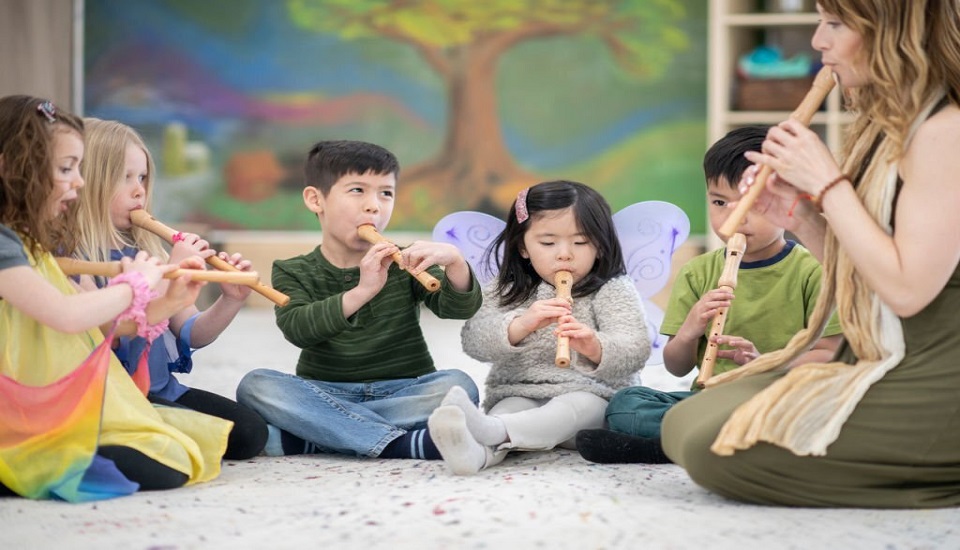Music helps children enjoy music and feel happy. It furthermore enhances their math skills, literacy, complete brain development and can even advance their academic performance. Dr.Maria Montessori strongly determined that young kids experience a sensitive period for music growth between the ages of 2 and 6 years old.
Research and studies also show that music skills share neural trails with language developmentwhich are essential for reading development.Hence, it's crucial that Montessori teachers integrate music into everyday activities.
Dr. Maria Montessori said, “Every human group loves music. Each creates its own music, just as it does its own language… Education is a natural process carried out by the child and is not acquired by listening to words but by experiences in the environment.”
Why Music Is Important In Montessori Education?
There are numerous benefits to encouraging music development in preschool-age children, here are some of the major ones ---
- Improves Children’s Brain Growth
Montessori education highlights the importance of distinguishingkids’ sensitive periods. It customizes instruction to match with these. In the first three years of a child’s life, music can be used to kindle nerve connections between brain cells that play a significant role in cognitive development.
- Boosts Spatial Skills
A lot of studies have revealed that music enhances special reasoning skills and math scores too. It has been found that playing music has long-lasting positive effects, as opposed to just listening to it. Research also found that kids who had six months of piano lessons enhanced their aptitude to do puzzles as well as other spatial tasks.
- Boosts Children’s Literacy
Did you know taking music lessons can improve children’s listening skills?This is because humans process sounds the same way we process speech and the music education can in turn advance the way children process language. Improved ability to process language can lead to better-quality literacy.
- Enhances Academic Achievement
Music education is connected to academic achievement.Learning to play an instrument, as opposed to just taking music gratitude classes, can have an even better effect on speech processing.
- Improves Focus And Memory
Throughmusic education, children learn that mastery is a direct result of practicing regularly, in part because repetition strengthens memory. While playing any kind of instrument, kids exercise in focus, hand/eye coordination, and both physical and mental recall.These help in boosting focus and memory together.
The impression that every kid has musical potential and all kids are able to express themselves musically pervades the Montessori method.Therefore, music is fused into the Montessori curriculum in the day-to-day classroom environment.
Maria Montessori, the founder of this educational technique, felt that children learn best through their senses. The Montessori learning program follows to the certain principles: Learning should be child-directed with support, encouragement, and guidance from the teacher.
Kids naturally like to move, dance, and wiggle, and music is categorically perfect for that.
Conclusion
Dr.Montessori believed music play a large role in early childhood education. With Montessori teacher training courses, you will be able to teach young children more effectively in a Montessorisetting. Kids who learn with music education are readier to problem-solving, have improved motivation, better spatial abilities, and they develop other skills as well.
Written By : Rutuja Badade








